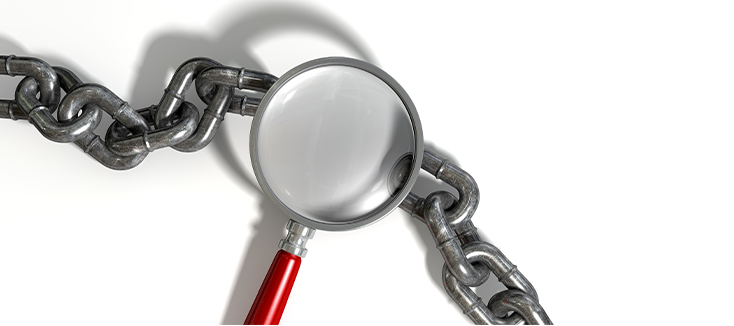Reprocessing ultrasound probes is a critical yet often overlooked aspect of healthcare, and the method used to carry out this task can profoundly impact the healthcare staff responsible for its execution. Comparing manual reprocessing with automated alternatives, such as semi-automated and fully automated methods, it becomes evident that the burden placed on healthcare staff is significantly reduced, and their well-being is better supported when automation is employed. This shift towards automation not only enhances efficiency and infection control but also addresses the physical and emotional challenges associated with manual reprocessing.
Physical Strain and Repetitive Tasks
Manual reprocessing of ultrasound probes is a labor-intensive process that involves repetitive tasks, such as scrubbing, rinsing, and handling chemical disinfectants. Healthcare staff tasked with manual reprocessing often face physical strain and fatigue due to the repetitive nature of these activities. Manual reprocessing frequently requires staff to assume awkward postures for prolonged periods and perform repetitive motions; these can eventually lead to musculoskeletal injuries, including strains, sprains, and other disorders.
Conducting manual high-level disinfection often requires that basins be filled with toxic disinfectants to partially submerge the probe for disinfection. Due to the risky nature of leaving expensive ultrasound probes partially submerged in these high-level disinfectants, staff often must stick around and monitor the probe as it soaks. They must also ensure that the electrical connector does not get wet and cause damage to the probe. Not only is this a big waste of time, it poses a threat to that professional. Breathing in the vapors released by high-level disinfectants day after day can lead to irritation, discomfort, and even miscarriage if the staff member is pregnant.
Moreover, manual reprocessing requires meticulous attention to detail and adherence to stringent protocols to ensure effective disinfection. Healthcare staff must perform each step of the process with precision and accuracy every time, leaving little room for error. The pressure to maintain high standards and adhere to infection control practices can contribute to heightened stress and anxiety among staff members, particularly in busy clinical environments where time constraints and workload pressures are typical. This can result in mistakes being made and even worse mental health outcomes.
Emotional Toll and Psychological Well-being
In addition to physical strain, manual reprocessing can take a toll on the emotional well-being of healthcare staff. The repetitive nature of the task, combined with the need for meticulous attention to detail, can lead to feelings of monotony, boredom, and burnout. Performing the same tasks day after day without variation or stimulation can erode job satisfaction and contribute to feelings of disillusionment or disengagement among staff members. Healthcare professionals who have dreams of helping patients instead find themselves staring into basins of disinfectant, feeling like they are watching paint dry. They certainly didn’t seek medical training with this eventuality in mind.
Furthermore, as discussed above, manual reprocessing directly exposes healthcare staff to potentially hazardous chemicals and infectious materials, increasing the risk of occupational exposure and infection transmission. Concerns about personal safety and health can heighten anxiety and stress levels, leading to weighty mental health challenges, particularly in the context of emerging infectious diseases or outbreaks, as we saw during the COVID-19 pandemic.
Benefits of Automated Reprocessing
The Occupational Safety and Health Administration (OSHA) states that automation of high-level disinfection procedures can "significantly reduce" exposure to harmful disinfectants. Automated reprocessing technologies, such as semi-automated and fully automated systems, offer significant advantages over manual methods regarding the physical and emotional well-being of healthcare staff. By automating the disinfection process, these technologies alleviate the burden of repetitive tasks and reduce the risk of injuries associated with manual reprocessing.
Fully automated reprocessing systems, such as the Ethos® Automated Ultrasound Probe Cleaner Disinfector and the TEEClean® Automated TEE Probe Cleaner Disinfector, offer the ultimate solution for streamlining the high-level disinfection process of TEE, transvaginal, transrectal, and surface ultrasound probes. These systems automate every step of the reprocessing workflow, from cleaning to high-level disinfection, minimizing manual intervention and ensuring consistent, standardized results while freeing time for healthcare workers to devote to more meaningful tasks.
The method used to reprocess ultrasound probes significantly impacts the physical and emotional well-being of healthcare staff. Manual reprocessing places a heavy burden on staff members, exposing them to physical strain, repetitive tasks, and emotional stress. By contrast, automated reprocessing technologies offer a more efficient, standardized approach that reduces the risk of injuries and alleviates the psychological toll associated with manual methods.
As healthcare facilities prioritize patient safety, infection control, and staff well-being, adopting automated reprocessing technologies represents a proactive step toward achieving these goals. By investing in automation, healthcare organizations can support their staff members, enhance workflow efficiency, and promote a culture of safety and well-being in the workplace.


